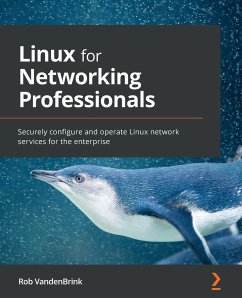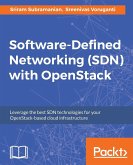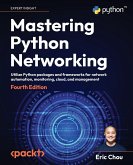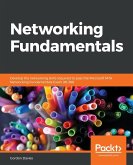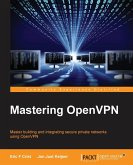Get to grips with the most common as well as complex Linux networking configurations, tools, and services to enhance your professional skills Key Features:Learn how to solve critical networking problems using real-world examples Configure common networking services step by step in an enterprise environment Discover how to build infrastructure with an eye toward defense against common attacks Book Description: As Linux continues to gain prominence, there has been a rise in network services being deployed on Linux for cost and flexibility reasons. If you are a networking professional or an infrastructure engineer involved with networks, extensive knowledge of Linux networking is a must. This book will guide you in building a strong foundation of Linux networking concepts. The book begins by covering various major distributions, how to pick the right distro, and basic Linux network configurations. You'll then move on to Linux network diagnostics, setting up a Linux firewall, and using Linux as a host for network services. You'll discover a wide range of network services, why they're important, and how to configure them in an enterprise environment. Finally, as you work with the example builds in this Linux book, you'll learn to configure various services to defend against common attacks. As you advance to the final chapters, you'll be well on your way towards building the underpinnings for an all-Linux datacenter. By the end of this book, you'll be able to not only configure common Linux network services confidently, but also use tried-and-tested methodologies for future Linux installations. What You Will Learn:Use Linux as a troubleshooting and diagnostics platform Explore Linux-based network services Configure a Linux firewall and set it up for network services Deploy and configure Domain Name System (DNS) and Dynamic Host Configuration Protocol (DHCP) services securely Configure Linux for load balancing, authentication, and authorization services Use Linux as a logging platform for network monitoring Deploy and configure Intrusion Prevention Services (IPS) Set up Honeypot solutions to detect and foil attacks Who this book is for: This book is for IT and Windows professionals and admins looking for guidance in managing Linux-based networks. Basic knowledge of networking is necessary to get started with this book.
Hinweis: Dieser Artikel kann nur an eine deutsche Lieferadresse ausgeliefert werden.
Hinweis: Dieser Artikel kann nur an eine deutsche Lieferadresse ausgeliefert werden.

